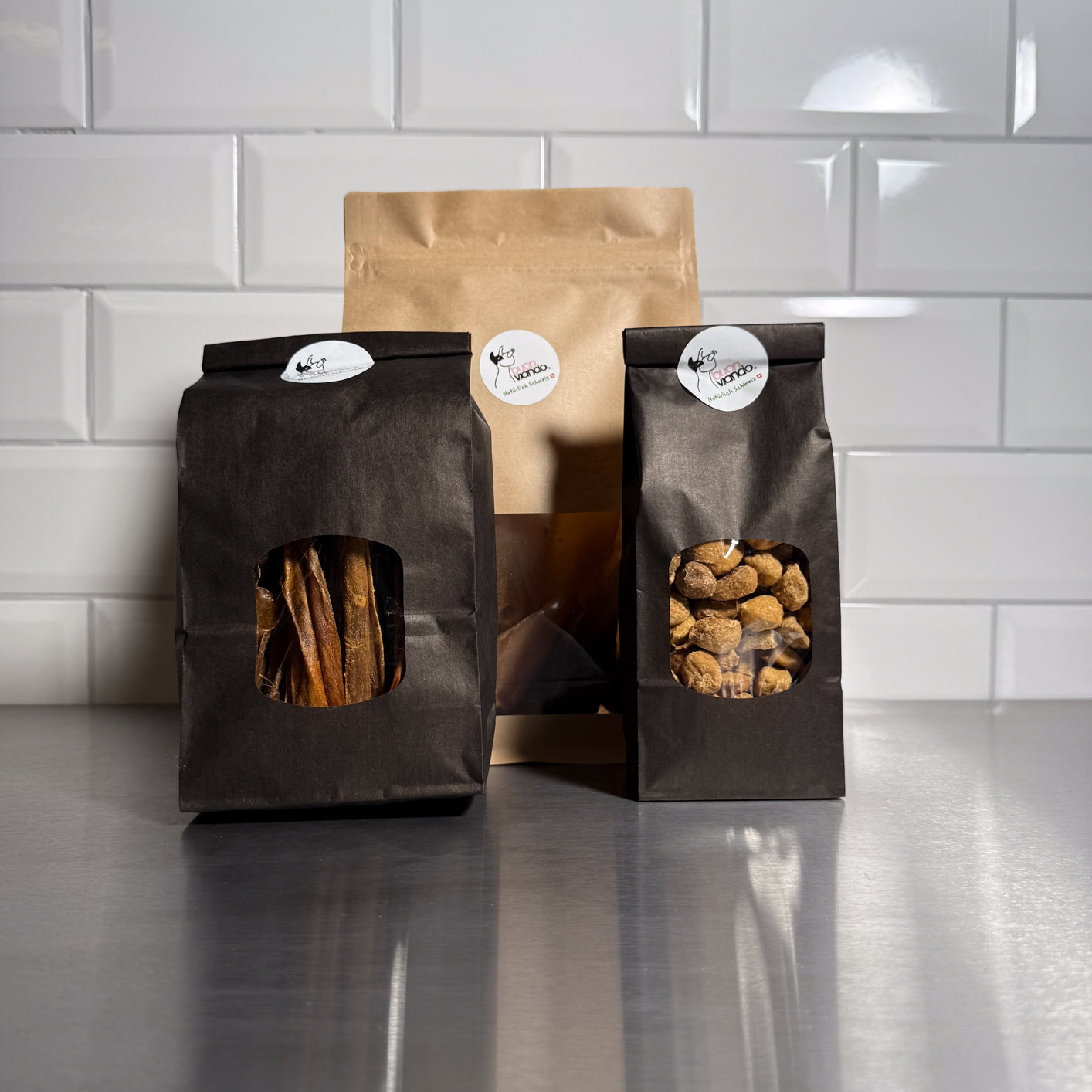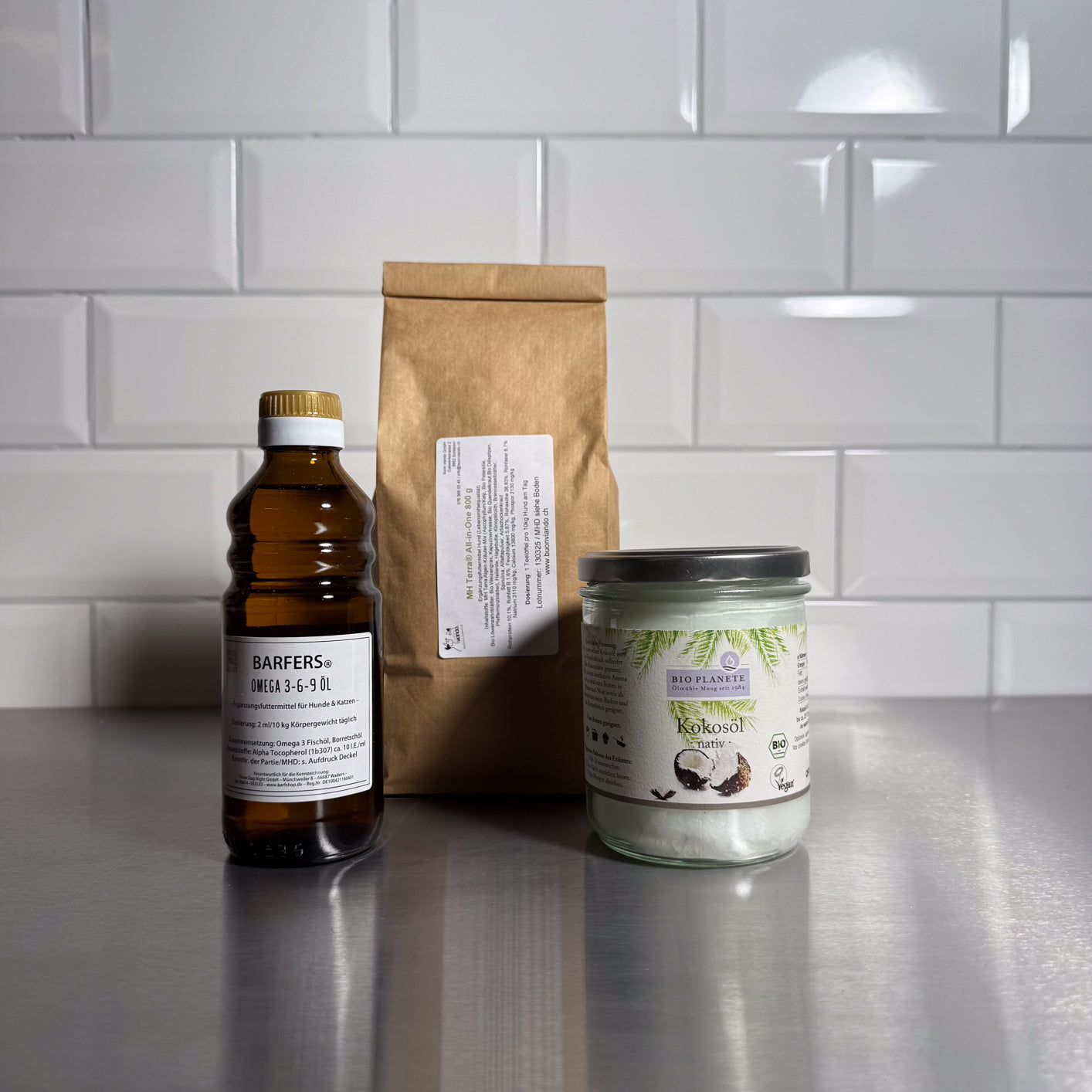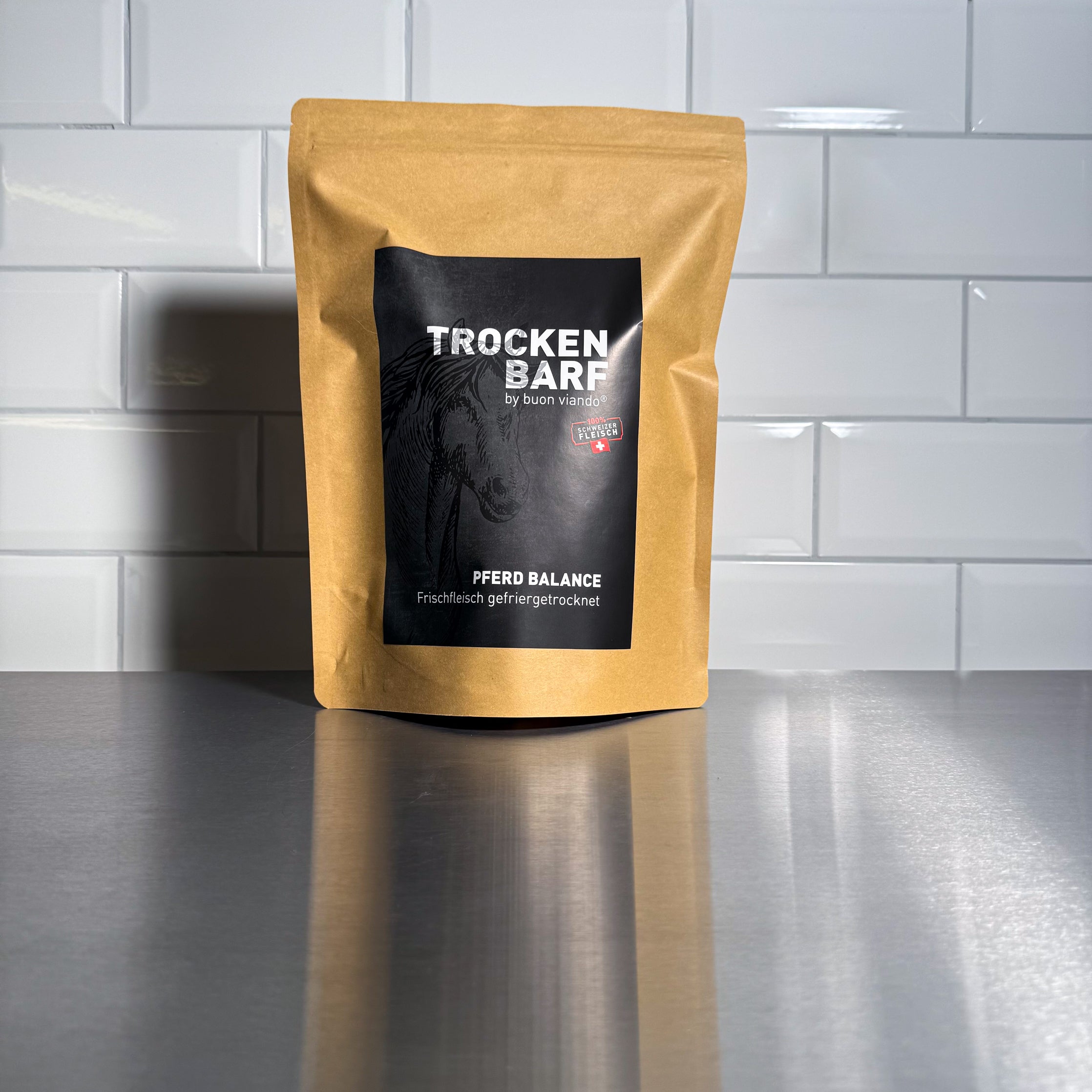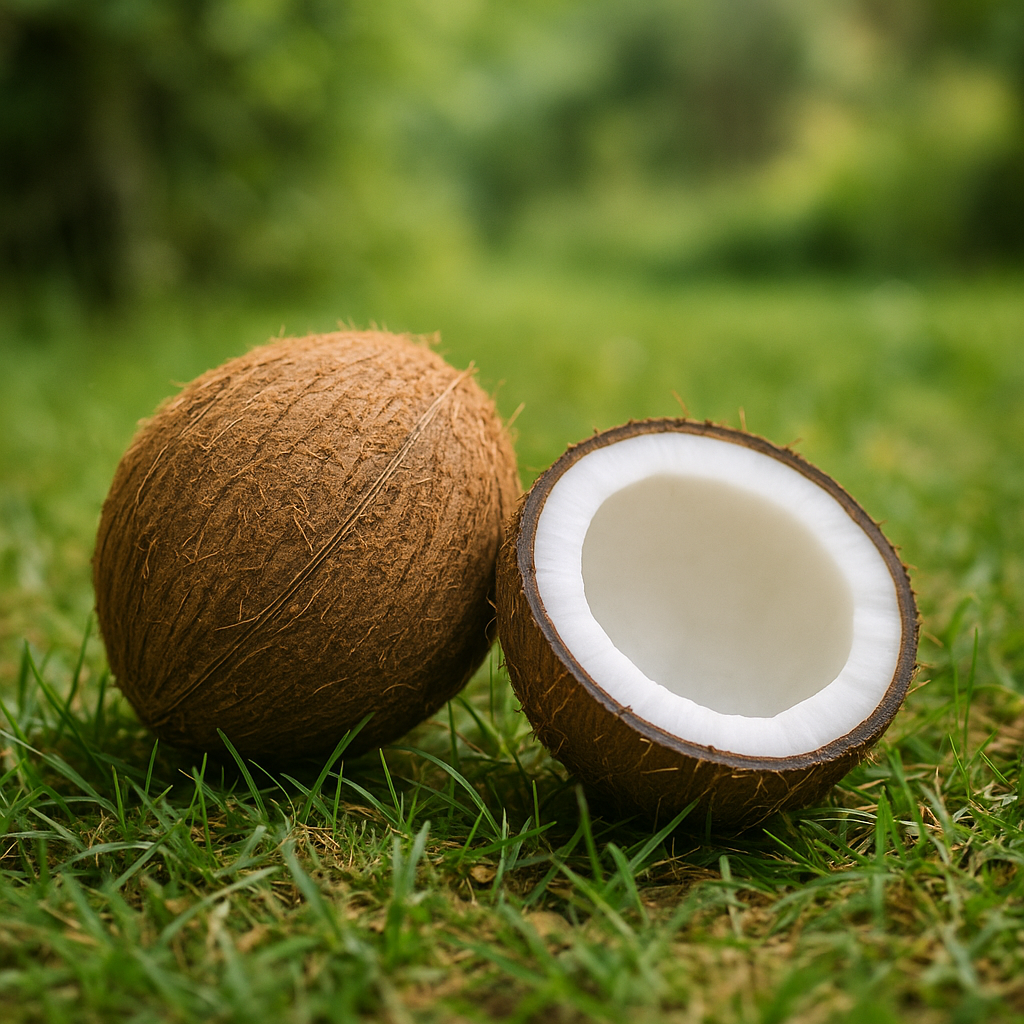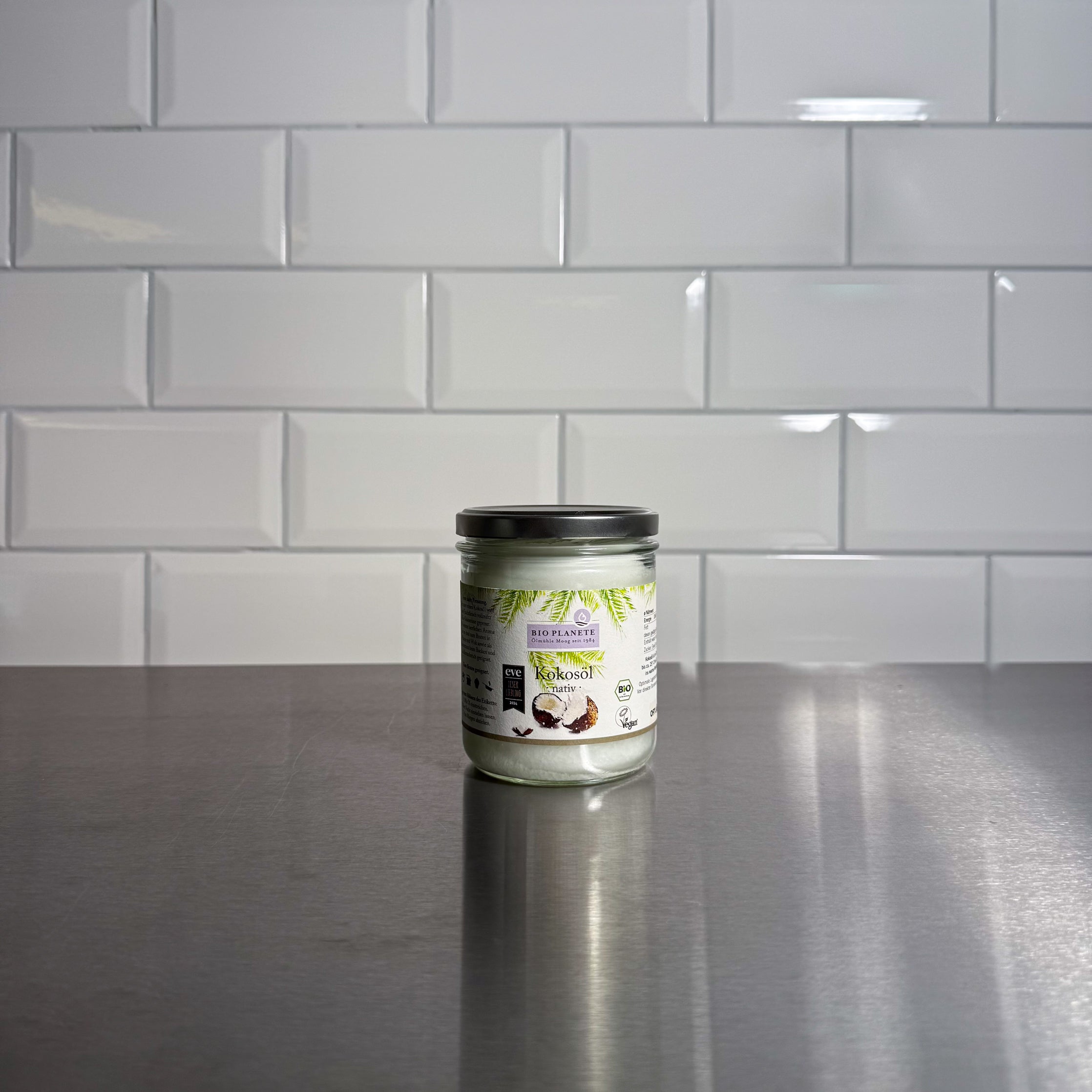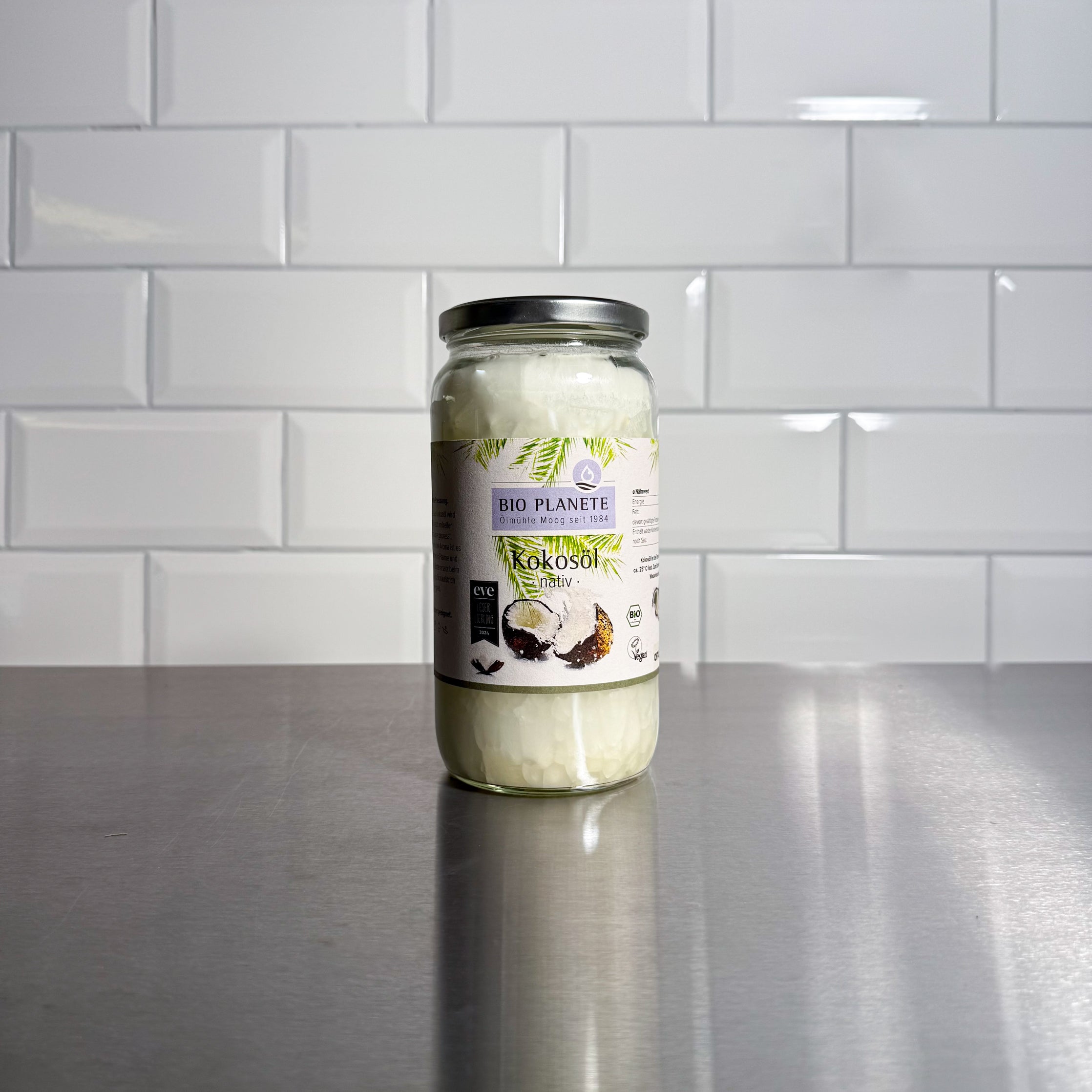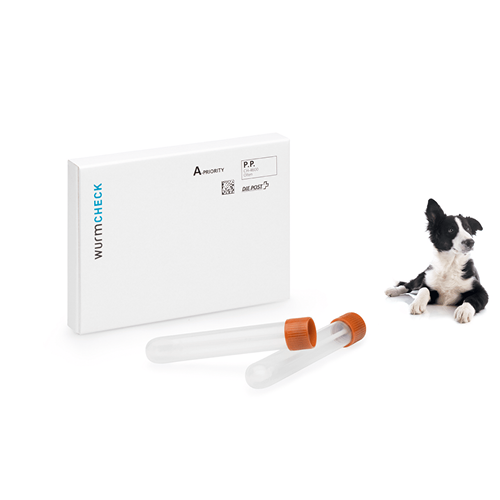Coconut oil has long been more than just a superfood for humans – it has also established itself firmly in the BARF world. Whether for natural parasite defense, skin and coat care, or as an energy source: this tropical oil is a true all-rounder. In this blog, you'll learn how to use coconut oil sensibly and safely in raw feeding – with practical examples and tips from everyday life.
What makes coconut oil so special?
Coconut oil consists largely of medium-chain fatty acids (MCTs), especially lauric acid. This has antibacterial, antiviral, and antifungal properties. At the same time, coconut oil provides quickly available energy, which can be particularly helpful for athletically active or underweight dogs.
Lauric acid, which makes up around 45-50% of coconut oil, is particularly noteworthy. It is also what many attribute its antiparasitic effect to.
When purchasing, it is important to ensure that it is cold-pressed, virgin, and organic to preserve the valuable ingredients. Good coconut oil can be recognized by its pleasant, subtle scent and creamy, smooth consistency at room temperature.
Coconut oil in the daily BARF diet
Coconut oil can be regularly mixed into food in small amounts as a healthy source of fat. It is particularly suitable for:
- Dogs with sensitive gastrointestinal tracts
- Allergy sufferers who have difficulty tolerating animal fats
- Active dogs with high energy needs
One teaspoon for small dogs or one tablespoon for large dogs per day is usually sufficient. Coconut oil can be alternated or combined with other oils such as salmon oil or hemp oil.
Coconut oil as natural parasite protection
Coconut oil is said to have a deterrent effect on worms, ticks, and fleas.
Internal use:
The lauric acid can change the intestinal environment, making it less comfortable for worms. It does not replace veterinary treatment, but can be used as an adjunct for prevention.
External use:
Simply pour a small amount of coconut oil into your palms, melt it slightly, and massage it into the coat – especially around the neck, back, and base of the tail. Many ticks and fleas find the smell of lauric acid unpleasant and stay away.
Important: Coconut oil is not a substitute for regular stool examinations (worm check) or targeted treatment for parasite infestations. However, it is a helpful component in a natural preventative care program.
Skin & coat care with coconut oil
Coconut oil is not only good for internal use, but also for external use. For itchy, irritated, or flaky skin, it can be applied directly to the affected areas. It also has a soothing and nourishing effect on minor wounds or insect bites.
An insider tip: Paw care in winter! Simply apply a small amount of coconut oil to the pads before a walk. It protects against salt, snow, and dehydration – completely chemical-free.
Our Practical tip
We like to use coconut oil selectively – especially in spring during tick season or for skin problems. It's also perfect for homemade treats: simply mix it with grated carrots and a little buckwheat flour, bake it, and you've got a healthy snack with extra protection.
Conclusion
Coconut oil is a true natural talent. Whether in food, for parasite protection, or for grooming: When used correctly, it can naturally support your four-legged friend's health and well-being. As always, pay attention to the quality and adapt the application to the individual. Then nothing stands in the way of a tropical boost in your pet's bowl!



